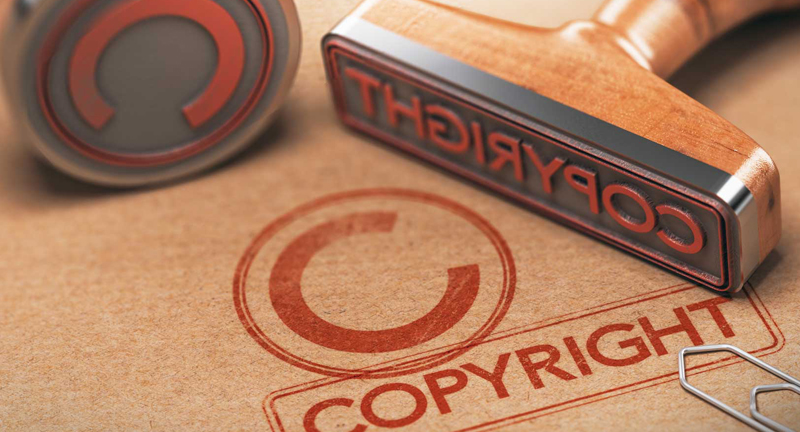Copyright Registration
- Start securing your work and enjoying certain legal rights over it in < 3 days
- Starting AT Rs. 4,099 Onwards
- At Minimum!!!”

Copyright is a kind of property preservation like trademark and patents. Copyright registration is done following the Copyright Act, 1957. With copyright registration, you become a legal owner of your creative work in respect of books, paintings, music, website, etc. Copyright registration with the authority secures the creative work of the author cannot be copied. No person is allowed to use the same without the allowance of the author or creator. The author is entitled to charge others for using his work or changing it. Copyrights registration safeguards the rights of the inventor from infringement.
In India, the registration gives its owner exclusive, individual rights to distribute, replicate, reproduce the work or give authorization to another entity for the same. It offers a bunch of rights – communication to the public, rights of reproduction, adaptation, and translation of the work. However, ideas, procedures, methods of operation or mathematical concepts cannot be copyrighted.
Copyright registration can be done by Insidetax in Delhi NCR, Mumbai, Bengaluru, Chennai & all other Indian cities.
Procedure for Copyright registration
Basic Requirements For Copyright Registration
Duration Of Copyright In India
After copyright registration, copyright is valid for the lifetime of the author 60 years after the death of the author.
Anonymous and pseudonymous works: 60 years from the date the work was 1st published.
Cinematographic works: 60 years from the date film was screened
Duration of copyright registration means the copyright in a work will live for such a period as directed under the copyright act and the same cannot be practiced without author/creator permission. Since the copyright duration in a work varies from the nature of work, the duration of copyright as per the work has been discussed hereinbelow:
Published bookish, musical-dramatic or artistic work: up to 60 years after the lifetime of the author.
Sound recordings: 60 years from the date such sound recording is released.
Things Are Protected Under Copyright
It protects the creation of ideas alone it cannot be protected. The following may be protected under copyright law.
Artistic work like paintings, photographs
Books
Broadcasts on Radio and Television
Cinematography film
Computer programs
Musical work & Sound recording
Original literary others
Published editions
Sound recording
Website
Copyright Registration And Protection
The Copyright Act, 1957 limits unauthorized usage of any original bookish, musical, dramatic, sound recordings, cinematograph and other artistic works. Both published and unpublished works can be copyrighted, and the copyright of the original work is held for the original creator.
If the work to be registered is unpublished, a copy of the book has to be sent along with the application for attaching the stamp of the Copyright Office in proof of the work having been registered. In case 2 copies of the book are sent, one copy of the same duly stamped will be returned, while the other will be held, as far as possible, in the Copyright Office for record and will be held confidential. It would also be open to the candidate to send only quotes from the unpublished work rather of the whole book and ask for the return of the quotes after being stamped with the authorization of the Copyright Office. When a work has been registered as unpublished and finally it is published, the candidate may apply for modifications in particulars entered in the Register of Copyright in Form 5 with the directed fee.
All kinds of bookish and artistic works can be copyrighted, you can also register a copyright application for your website or another computer program. Computer Software or programs can be registered as a ‘literary work’. As per Section 2 of the Copyright Act, 1957 “literary work” comprises computer programs, tables, and collections, including computer databases. ‘Source Code’ has also to be provided along with the application for certification of the copyright for software products. Copyright preservation limits the excessive generation of private products or works and ensures the individual owner holds vital rights over his creation.
Copyright protection of original bookish, musical, dramatic, and artistic works continues for the entire lifetime of the author. When the author dies the following 60 years after his death also no one can copy his or her content, logo, brand, etc.
Why Copyright Registration?
Documents Required For Copyright Registration
Name, Address & Nationality of the Candidate – ID proof
2 Copies of work
DD/IPO of Rs. per work ((as applicable)
KYC of author
NOC from a person whose photograph appears on the work.
NOC from the author if the candidate is different from the author.
NOC from the publisher if work published and publisher is different from the applicant.
Power of Attorney
Search Certificate from Trade Mark Office (TM -60) if any
Advantages Of Copyright Registration
Restricts Unauthorized Reproduction
Copyright registration will establish that you are grave about copyright infringement. This will help impede unauthorized reproduction of the work as it provides the owner with a host of legal remedies.
Creation of Asset
Copyright registration creates an intellectual property, an intangible asset. Registered copyrights are intellectual property and the rights can be sold, franchised or commercially contracted.
Global Protection
Works that are copyrighted in many other countries are accorded similar privileges here in India. Likewise, works copyright registered in India are accorded protection in many foreign countries.
Legal Protection
Copyright registration serves as prima facie evidence in the court of law over ownership of the work. Therefore, copyright registration gives the owner legal protection for his/her work.
Branding and Goodwill
Registered copyright can be used for marketing and creating a sense of goodwill and quality in the minds of your customer. Registered copyright show others that you care about your work.
What Is Included In Our Package
Application Drafting
Application Filing
Diary number
Government Fees
